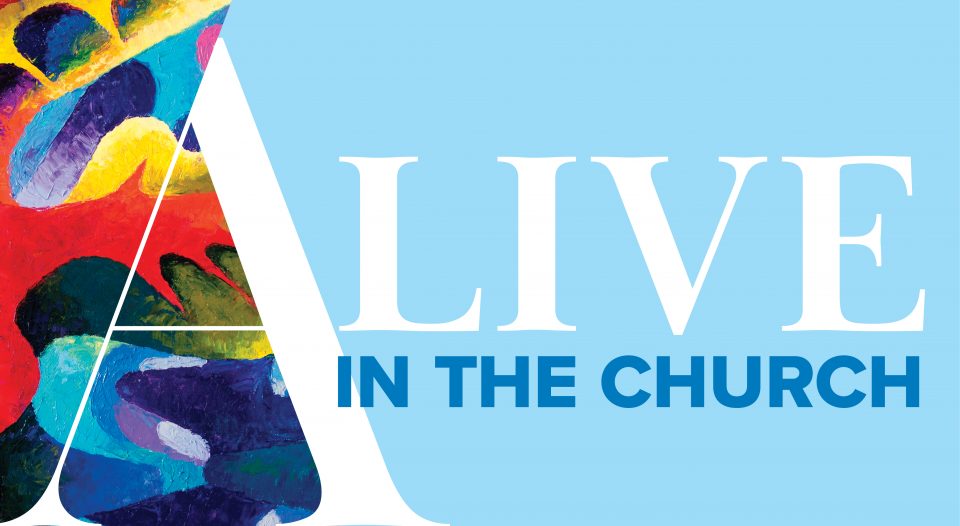Editor’s note: “There are no young people here” is a common refrain as some worry about the future of the church. But young adults are indeed active across the ELCA and have powerful faith stories to share. This series will highlight young leaders who are boldly pursuing God’s call and extending the ministry of the church.
In the last installment of the “Alive in the church” series, Living Lutheran asked returned Young Adults in Global Mission (YAGM) volunteers how their year of service helped shape their sense of vocation.
Hannah Sackett
Since my 2017-18 YAGM year in Rwanda, life, in some ways, bears a remarkable resemblance to pre-YAGM stateside: I have similar support systems, still live in Minnesota and drive the same car I’ve had since I was 16. In other ways, the experience has radically altered the way I exist in the world.
Initially I was adamant that the experience be “my own”—an independent, self-reliant journey. Then I landed in Kigali and was confronted daily with the undeniable necessity of collectivism, mutuality and interdependence in relationships. The year taught me that neighbor love will offer the gift of grace and ultimately save your life, if you just let it.
The year brought me into deeper understanding of justice, privilege, solidarity. My stories intersect with those of my neighbors in massively important ways, and those stories are all part of God’s story.
It also brought deeper understanding that accompaniment is a lifestyle, not simply a lens for the YAGM year. And while there are lots of ways to live out that vocation, I feel more and more confident that God is calling me to walk with neighbors as an ordained minister of the ELCA. This fall I began my studies at Luther Seminary, St. Paul, Minn., largely thanks to the cloud of witnesses who walked through the YAGM year with me.
When I (frequently) feel wary about this call, I remind myself of the YAGM bottom line: whether in Rwanda or Minneapolis, it’s all about the people. To live among them and realize in ordinary and stunning ways that we’re all connected, thank God.
Uzoma Ariguzo
As a YAGM volunteer, I witnessed my vocation evolve right before my eyes. I volunteered in the YAGM program in 2017-18 and worked at a Lutheran church in Australia. The program cautioned volunteers to limit their expectations of what a year of service would look like, as every year is different for each of them.
With that said, I would have never imagined how much impact accompanying members of my host community in Australia would have on my calling to ministry and my overall faith. I continuously learned more about my desire to be a comforting hand to others, and I learned how I played a role in my overall church community.
Not long after I arrived back from my year of service, I started working at the University of Maryland, College Park, as the assistant chaplain for the Lutheran campus ministry. I believe that volunteering in the YAGM program prepared me to work in this role and was an instrumental part of why I decided to come back to my second home at the university.
YAGM prepared me to work with students one-on-one to talk about life expectations and how faith played a pivotal role in these moments, just as I had done with members of my host community in Australia.
Even after my YAGM year was over, I understood how my calling to ministry had shaped the way I interacted with people and how my calling continues to change over time. I’m now discerning a call to ministry and planning on applying to ELCA seminaries throughout the next year.
Laura Hermanns
I’m endlessly grateful for my 2015-16 YAGM host community in the Huye District of Rwanda, who taught me some of my life’s hardest and most important lessons in vulnerability, humility, patience and, most importantly, how to live and love in a model of accompaniment.
They invited me into their classrooms to attempt to teach English grammar but also to learn about pain and conflict, and peace and reconciliation. These lessons provided the mirror I needed in order to see my own country more clearly—to see the wounds, oppressions and divisions that haven’t been fully acknowledged, repaired or healed, and to listen to how God was calling me amid that.
When I returned home, those lessons and that mirror helped me to hear God’s call to keep digging—to embrace the sometimes overwhelming complexity of the world around me and to look more critically at the root causes of inequity and injustice. They helped me hear God’s call to understand new perspectives, move toward the constructive capacity of conflict and create spaces for connection. They helped me hear God’s call to live out accompaniment in my own community.
Because I listened to that call, I recently gave my capstone presentation to earn my master’s degree in sustainable peace-building from the University of Wisconsin–Milwaukee. I’m now looking forward to starting a position to develop and foster collaborative partnerships for systems-change, focusing on relationships and community-building as the foundation of healthy neighborhoods.
Following the call to be church in the world has been made possible because of this church that believes so deeply in the transformative power of relationships.




